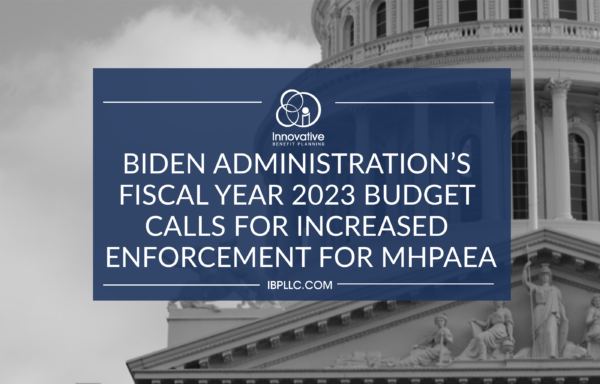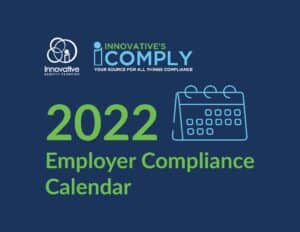Biden Administration’s Fiscal Year 2023 Budget Calls for Increased Enforcement for MHPAEA

The Biden Administration’s FY 2023 proposed budget requests increased funds to enforce the Mental Health Parity and Addiction Equity Act of 2008 (MHPAEA). Specifically, the budget would allot $125 million to the states for MHPAEA enforcement. Additionally, President Biden requested an additional $275 million for the Department of Labor (DOL) to perform MHPAEA audits of group health plans over the course of the next 10 years. The proposed budget would also grant authority to the DOL to turn enforcement efforts toward the vendors who design and apply quantitative and non-quantitative treatment limitations (QTL and NQTL) for self-funded group health plans. Currently, the DOL’s authority is limited to the group plan sponsors under ERISA. This shift would allow the DOL to zero in on the parties responsible for the creation and administration of the play provisions, which are typically the plan’s carriers, instead of limiting the audit to the plan sponsor, who may not necessarily have all of the required information or the ability to exercise much control over the plan’s administration more generally.
As background, MHPAEA establishes requirements for group health plans offering mental health and substance use disorder (MH/SUD) benefits to provide them in parity with medical/surgical (M/S) benefits. This means that plans cannot impose treatment limitations (i.e., number of visits) and financial requirements (i.e., deductibles) on MH/SUD benefits that would be more restrictive than those imposed on M/S benefits. Specifically, the treatment limitations and financial requirements cannot be more restrictive than the predominant financial requirements and treatment limitations applicable to substantially all M/S benefits in a particular classification. Additionally, MHPAEA also requires that plans do not apply NQTLs to MH/SUD benefits unless the same NQTLs are equally applied to M/S benefits. Effective in 2021, the Consolidated Appropriations Act 2021 (CAA) imposed additional requirements on group health plans to conduct a comparative analysis of the design and application of NQTLs under their plans. This analysis must be documented in writing and available upon request by the DOL, Department of Health and Human Services (HHS), the Treasury Department and/or other state authorities. Federal mental health parity laws have been a high enforcement priority for the DOL since MHPAEA’s initial enactment in 2008, and the CAA only heightened its focus.
If requested, the analysis must include the following:
- Specific plan or coverage terms regarding the NQTLs
- Factors used to determine the NQTLs will apply
- Evidentiary standards used for the factors identified
- Comparative analyses demonstrating the process
- Strategies and evidentiary standards used to apply the NQTLs
- Any specific findings and conclusions reached indicating the health plan is or is not compliant
If the DOL finds noncompliance following an audit, the plan will have 45 days to correct the issue and show the DOL the comparative analysis to prove the plan was altered to be in compliance. At which point, if the DOL finds the plan is still out of compliance, the plan will have an additional 7 days to notify all individuals in the plan that the coverage is in violation with MHPAEA. The Agencies would then report the non-compliance to the states where the employer does business. There is also the potential for civil monetary penalties to be issued in the event of non-compliance.
While the FY 2023 budget is still in the proposed stage and subject to change, it is an indication of what is to come in terms of MHPAEA compliance and evidences an increased focus on plan audits. Plan sponsors should reach out to their carriers, if they haven’t done so already, to confirm compliance with MHPAEA. In many instances, an analysis will need to be completed by a third party to ensure the proper documentation is available for the plan sponsor in the event of an audit. Merely relying on the carrier may not be enough in every situation so plan sponsors should be connecting with their TPAs and counsel whenever possible. The DOL has issued a Self Compliance Tool that can be utilized to assist with the process of confirming and documenting compliance with MHPAEA. This tool can be found here.

2022 Employer Compliance Calendar
Are you finding it difficult to keep up with the constant changes in the compliance landscape? We understand that HR professionals have other important items on their plate so we have put together a 17 page calendar that will insure employers are meeting deadlines to remain compliant in the workplace. Click below to download our calendar!
Categories
Archive








